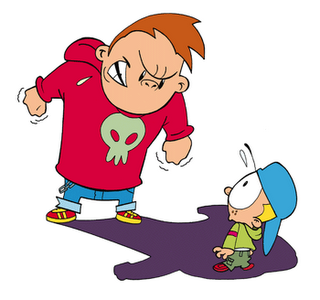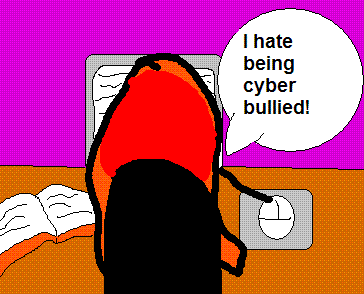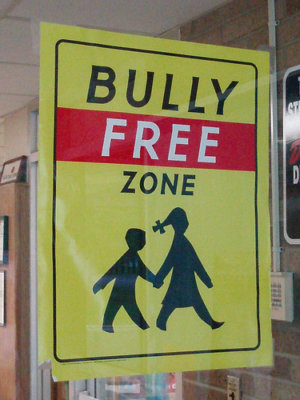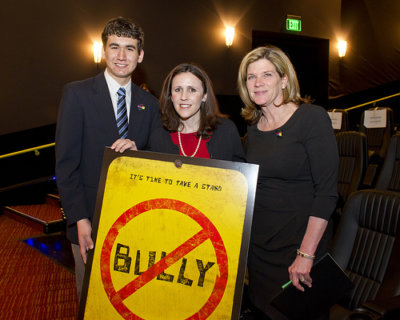Is Your Child Being Bullied? What You Can Do
 Dr. Sheri Jacobson
October 26, 2022
Dr. Sheri Jacobson
October 26, 2022
 No parent wants to hear that their child is being bullied. Sadly, though, it is far from a rare experience among young people in the UK.
No parent wants to hear that their child is being bullied. Sadly, though, it is far from a rare experience among young people in the UK.
The statistics are sobering. Almost half of children and young adults claim they have been bullied at school at some point in their lives, and between 2011 and 2012 the charity Childline received over 30,000 bullying-related calls.
As a parent, you can feel helpless, made worse if your child does not want to talk about what they are going through. It’s good to know the real facts about bullying and what you can do to assist a child being bullied.
What childhood bullying is (and what it isn’t)
Bullying is generally understood as repeated behaviour which is designed to hurt someone either physically or emotionally, although there is no legal definition at present. Bullying includes physical assault, name-calling, exclusion from social situations, spreading rumours, or making threats.
Bullying is not a normal part of growing up. The effects of bullying can be very severe and carry on for years. This can include depression, anxiety, loss of self-esteem, and even suicidal thoughts. A recent study by King’s College London showed that the impact of bullying can be seen up to four decades after the incidents took place.
Bullying is not something a child can deal with alone. It is important for parents and other adults to take bullying seriously. If your child tells you they are being bullied, the first thing to do is listen carefully and let them tell you what happened in their own words.
Bullying is not predictable. Anyone can be a victim of bullying. There are as many different kinds of victim (and bully) as there are different kinds of people. Try not to get hung up on figuring out the reasons if you find out about your child being bullied. It is more important that they know you are there for them and will help them to figure things out.
What is cyber bulling?
38 per cent of young people have been affected by cyber-bullying.
 Cyber-bullying is any kind of harassment or intimidation which occurs in an online space. This could involve sending someone abusive messages, distributing personal information or using it to blackmail someone, sending inappropriate pictures or spreading rumours, and identity theft.
Cyber-bullying is any kind of harassment or intimidation which occurs in an online space. This could involve sending someone abusive messages, distributing personal information or using it to blackmail someone, sending inappropriate pictures or spreading rumours, and identity theft.
Cyber-bullying is just as serious as bullying which happens offline. Tragically, some young people have committed suicide because they haven’t seen a way out of the non-stop intimidation, abuse and harassment which has happened online. Sadly, the fact that many websites allow people to post anonymously makes it is easy for bullies to carry out attacks and at the same time very difficult to stop cyber bullying.
The motivation for cyber-bullying is the same as for face-to-face bullying. People become cyber-bullies because they have their own problems and it makes them feel better to hurt someone else. A key difference is that cyber-bullying can easily be achieved anonymously. It is easier to send someone a nasty message rather than say something to someone’s face. The bully many not realise the consequences of their actions straight away.
Cyber bullying can affect children who don’t even use the internet. Even if someone chooses not to use social media, they can still be affected by bullies. There is a type of cyber-bullying which involves distributing someone else’s information or photographs and writing fake comments, profiles and blogs. You child might be tormented and teased by others over content about themselves they haven’t even seen.
Cyber bullying can be even more challenging than regular bullying for parents to understand. Cyber-bullying is a relatively new problem for young people, and its on a platform that is constantly changing (the internet and social media). A lot of parents aren’t even users of the sites their child is being bullied over. Parents will need to educate themselves, such as looking into whether the web platform being used allows reporting harassment or blocks users.
Why do children feel they can’t tell their parents about being bullied?
According to government reports, 18 per cent of children and young people choose not to talk to their parents about bullying.

By: Eddie~S
There are a number of reasons why children do not tell their parents they are being bullied.
- They may worry that they won’t be taken seriously
- They may feel ashamed or embarrassed
- They may not want to worry their parent or feel they should ‘protect’ their parent
- They may worry that they will be blamed for attracting the attention of bullies through their own behaviour (see section below on ‘pathologising the victim’)
- They may feel that it is their fault
- They may not see the bullying as unusual because they somehow feel they deserve it
- They may not see the benefit of telling an adult
- They may worry that they will be branded a ‘snitch’ by the bullies, leading to the bullying will get worse.
Children can want to keep the different parts of their lives separate, or ‘compartmentalise’, just like adults do. Although the effects of bullying can be far-reaching and horrible, a child may feel strongly that he wants to keep the problem separate from his or her role in the family. Spending time with family members or even just relaxing at home could be the sole part of the day when the child feels ‘normal’. Even if they could really do with some support from their parents, they may feel they want to protect this precious part of their life by not showing themselves to be the ‘kid who’s being bullied’.
How parents make things worse for a bullied child
Sometimes, despite their best intentions, parents can make things harder for their child with their reaction to bullying. There are several ways in which this can happen.
Overreacting. Some parents may feel absolutely furious that their child is being bullied and feel they have to handle the situation with ‘guns blazing’. They may go straight to the child’s school, make complaints against teachers, demand to speak to the parents of the perpetrator, keep their child home from school for long periods of time, and otherwise make it known how displeased they are. The result can be that the child feels even more embarrassed, ashamed and powerless, and faces humiliation from other students and more severe bullying in the future for being a ‘baby’ or ‘snitch’.
Under-reacting. Downplaying the bullying by laughing it off, or telling the child that the bully’s behaviour is not a big deal and they should ignore it, then becoming impatient if they remain upset, is all a way to dismiss your child’s feelings.
Pathologising the Victim. Focusing on the child’s behaviour as a root cause of the bullying implies that the child has brought the attention of bullies on themselves by acting shy or unsociable. This will make your child feel there is something wrong with them. The same effect occurs if you demand your child ‘stand up for themselves’ and get impatient if they predictably find this difficult to achieve. Pathologising your child – implying that it is their fault as they are doing something wrong- is saying more about you than your child, and comes from a parent projecting their own fear and issues onto their child.
Finding out your child is bullied is stressful and no parent is expected to act perfectly. If you find yourself in this situation, try talking to someone you can trust about how you feel that your child is being bullied. If you feel you can’t be this open with people you know, then consider talking to a professional counsellor, who can support you in a non judgemental way.
What can parents and other adults do when a child they know is being bullied?

By: Maryland GovPics
1) Examine your own feelings before reacting.
How would you feel if your child or a child in your care told you they were being bullied? Angry? Upset? Helpless? Bemused? Our feelings towards these situations often mimic our own early experiences. If you were bullied as children, you may panic and overreact at the thought of your child experiencing anything similar. If you were never bullied, you may not see it as a big deal or try to laugh it off.
2) Carefully think through your own responses before you decide what to do.
Can you try to imagine things from your child’s perspective?
3) Take out blame.
It is one thing to encourage healthy relationships and activities and quite another to insinuate that the bullying would not have occurred if the child was more confident/popular/sociable. The more parents focus in on the victim’s behaviour, the more the victim is encouraged to blame themselves. Even if the victim could deflect the attention of a particular individual or group of bullies, this will not entirely solve the problem as someone else could end up taking their place.
4) Plan ahead.
When making an appointment to speak with your child’s teacher, try and decide what you would like to get out of the appointment before you go. If you decide ahead of time what you’d like to say, and have as many facts prepared as possible, you’ll be able to make the most out of the time you have. Try not to get angry with the teacher – they may be unaware of what is happening. It will help to collect together some specific examples of what has been happening. If the school has an anti-bullying policy, ask to see it and discuss a plan of action.
5) Encourage the child’s involvement in the solution.
When a child tells an adult they are being bullied, chances are they will have been worrying about the problem for some time. They may have felt concerned about the consequences of getting an adult involved and felt constrained by the fear that things will get worse. Don’t take on the onus of finding a solution without involving your child. Let them have a say in what will happen, and they will feel more confident and secure in themselves.
Has this article been inspiring? Please share! At Harley Therapy we are committed to spreading the word that emotional wellbeing is as important as physical wellbeing and something we should all feel comfortable talking about.
*pictures by Pimke, J_O_I_D, Twentyfour Students, Maryland Gov Pics



